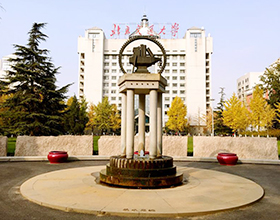
2019年10月24日 15:30 ~ 2019年10月24日 17:30
名额 82人
微信扫一扫,活动随身看
讲座人介绍:
James M. Tien received the BEE from Rensselaer Polytechnic Institute (RPI) and the SM, EE and PhD from the Massachusetts Institute of Technology. He has held leadership positions at Bell Telephone Laboratories, at the Rand Corporation, and at Structured Decisions Corporation. He joined the Department of Electrical, Computer and Systems Engineering at RPI in 1977, became Acting Chair of the department, joined a unique interdisciplinary Department of Decision Sciences and Engineering Systems as its founding Chair, and twice served as the Acting Dean of Engineering. In 2007, he was recruited by the University of Miami to be a Distinguished Professor and Dean of its College of Engineering; effective 2016, he stepped down from the Dean’s position and remains a Distinguished Professor. He has been awarded the IEEE Joseph G. Wohl Outstanding Career Award, the IEEE Major Educational Innovation Award, the IEEE Norbert Wiener Award, and the IBM Faculty Award. He is also an elected member of the U. S. National Academy of Engineering.
讲座内容:
The outputs or products of an economy can be partitioned into three sets of products: goods (due to manufacturing, construction, agriculture and extraction), services and an integration of services and goods or servgoods. In an earlier paper, Tien (2012) considered these types of products in terms of their relation to the three Industrial Revolutions: the First Industrial Revolution (circa 1800) was primarily focused on the production of goods; the Second Industrial Revolution (circa 1900) was primarily focused on the mass production of goods; and the Third Industrial Revolution (circa 2000) has been primarily focused on the mass customization of goods, services and servgoods. In this follow-up paper, the Third Industrial Revolution of mass customization continues to evolve and, in many respects, is subsuming the earlier Industrial Revolutions of production and mass production. More importantly, with the advent of real-time decision making, artificial intelligence, Internet of Things, mobile networks, and other advanced digital technologies, customization has been extensively enabled, making real-time customization, the basis for the Fourth Industrial Revolution, an increasingly formidable and smart approach. However, the moral and ethical problems associated with real-time customization must be carefully assessed and minimized, especially in regard to unintended consequences. Prospectively and with the advance of artificial general intelligence, the Fourth Industrial Revolution could be forthcoming in about mid-century; it would allow for multiple activities to be simultaneously tackled in real-time and in a customized manner.
注意:
1.网上预约所要求填写的学号与姓名均为必填项,且须与本人一卡通完全一致,否则会导致最终预约不成功。
2.讲座开始前工作人员收一卡通记次数,讲座结束后归还。预约而未听讲座、讲座迟到早退者均倒扣一次,未预约而去听讲座不计次数。
3.学院学生均使用学校mis账号及密码进行登录报名,校内学生使用校外注册账号进行报名,将视为校友或者其他校外人员,并不予进行统计前沿讲座次数。
2019/10/24
08:24
2019/10/24
08:22
2019/10/23
22:28
2019/10/23
22:12
2019/10/23
20:14
2019/10/23
17:57
2019/10/23
11:57
2019/10/23
11:51
2019/10/23
11:50
2019/10/23
11:49
2019/10/23
11:48
2019/10/23
11:47
2019/10/23
11:47
2019/10/23
11:47
2019/10/23
11:45
2019/10/23
11:41
2019/10/23
11:37
2019/10/23
11:36
2019/10/23
11:34
2019/10/23
11:32
2019/10/23
11:31
2019/10/23
11:30
2019/10/23
11:14
2019/10/23
11:14
2019/10/23
11:13
2019/10/23
11:11
2019/10/23
11:00
2019/10/23
11:00
2019/10/23
10:59
2019/10/23
10:59
2019/10/23
10:58
2019/10/23
10:57
2019/10/23
10:54
2019/10/23
10:52
2019/10/23
10:51